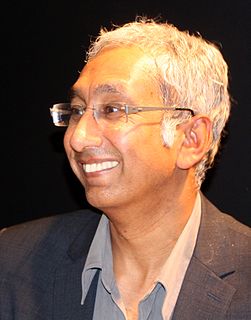A Quote by Aldo Leopold
Science contributes moral as well as material blessings to the world. Its great moral contribution is objectivity, or the scientific point of view. This means doubting everything except facts; it means hewing to the facts, let the chips fall where they may.
Related Quotes
Moral questions may not have objective answers-whether revealed by God or by science-but they do have rational ones, answers rooted in a rationality that emerges out of social need. That rationality can only be discovered through exercising the human potential for rational dialogue, the potential for thinking about the world, and for discussing, debating and persuading others. Values can never be entirely wrenched apart from facts; but neither can they be collapsed into facts. It is the existence of humans as moral agents that allows us to act as the bridge between facts and values.
It would appear... that moral phenomena, when observed on a great scale, are found to resemble physical phenomena; and we thus arrive, in inquiries of this kind, at the fundamental principle, that the greater the number of individuals observed, the more do individual peculiarities, whether physical or moral, become effaced, and leave in a prominent point of view the general facts, by virtue of which society exists and is preserved.
To ignore [the] great social facts -- political facts, if you please -- and over-emphasize the old moral responsibility of the 'domestic' mother is a hollow mockery and betrays a hopeless ignorance of industrial and urban conditions in the Twentieth Century. ... Everything that counts in the common life is political.
Since my moral system rests on my accepted version of the facts, he who denies my moral judgments or my version of the facts, is to me perverse, alien, dangerous. How shall I account for him? The opponent has always to be explained, and the last explanation that we ever look for is that he sees a different set of facts. Such an explanation we avoid, because it saps the very foundation of our own assurance that we have seen life steadily and seen it whole.
[The scientist] believes passionately in facts, in measured facts. He believes there are no bad facts, that all facts are good facts, though they may be facts about bad things, and his intellectual satisfaction can come only from the acquisition of accurately known facts, from their organization into a body of knowledge, in which the inter-relationship of the measured facts is the dominant consideration.
When physics, chemistry, biology, medicine, contribute to the detection of concrete human woes and to the development of plans for remedying them and relieving the human estate, they become moral; they become part of the apparatus of moral inquiry or science? When the consciousness of science is fully impregnated with the consciousness of human value, the greatest dualism which now weighs humanity down, the split between the material, the mechanical and the scientific and the moral and ideal will be destroyed.
We must start with scientific fundamentals, and that means with the data of experiments and not with assumed axioms predicated only upon the misleading nature of that which only superficially seems to be obvious. It is the consensus of great scientists that science is the attempt to set in order the facts of experience.
I take facts about reasons to be fundamental in two ways. First, I believe that facts about reasons are not reducible to or analyzable in terms of facts of other kind, such as facts about the natural world. Second, I believe that reasons are the fundamental elements of the normative domain, and other normative notions, such as goodness and moral right and wrong can be explained in terms of reasons.







































